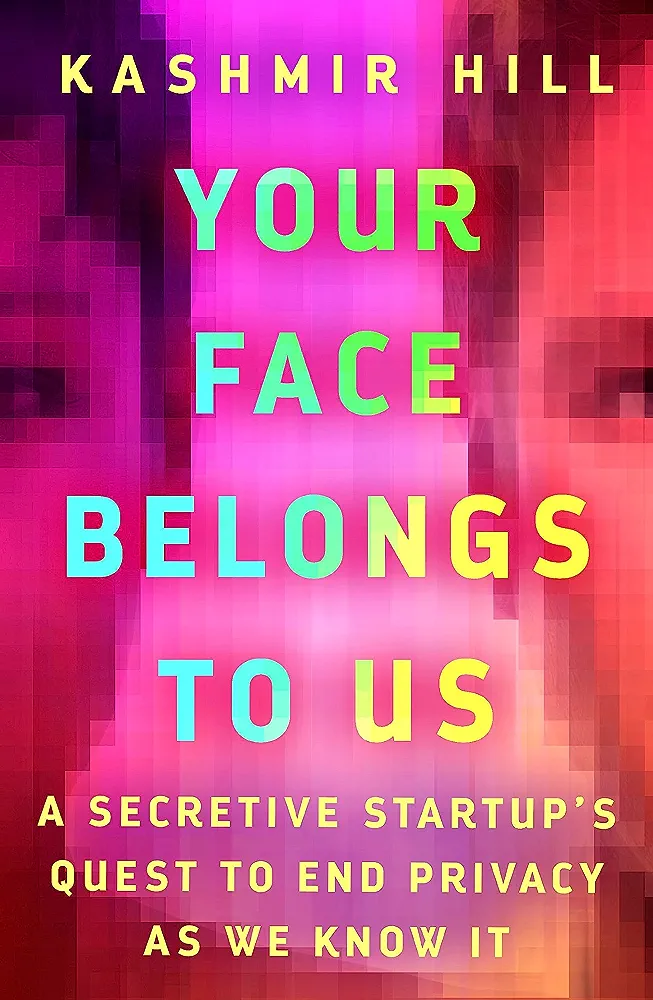English language
Published Aug. 31, 2023 by Random House Publishing Group.

English language
Published Aug. 31, 2023 by Random House Publishing Group.
New York Times tech reporter Kashmir Hill was skeptical when she got a tip about a mysterious app called Clearview AI that claimed it could, with 99 percent accuracy, identify anyone based on just one snapshot of their face. The app could supposedly scan a face and, in just seconds, surface every detail of a person’s online life: their name, social media profiles, friends and family members, home address, and photos that they might not have even known existed. If it was everything it claimed to be, it would be the ultimate surveillance tool, and it would open the door to everything from stalking to totalitarian state control. Could it be true?
In this riveting account, Hill tracks the improbable rise of Clearview AI, helmed by Hoan Ton-That, an Australian computer engineer, and Richard Schwartz, a former Rudy Giuliani advisor, and its astounding collection of billions of faces from the …
New York Times tech reporter Kashmir Hill was skeptical when she got a tip about a mysterious app called Clearview AI that claimed it could, with 99 percent accuracy, identify anyone based on just one snapshot of their face. The app could supposedly scan a face and, in just seconds, surface every detail of a person’s online life: their name, social media profiles, friends and family members, home address, and photos that they might not have even known existed. If it was everything it claimed to be, it would be the ultimate surveillance tool, and it would open the door to everything from stalking to totalitarian state control. Could it be true?
In this riveting account, Hill tracks the improbable rise of Clearview AI, helmed by Hoan Ton-That, an Australian computer engineer, and Richard Schwartz, a former Rudy Giuliani advisor, and its astounding collection of billions of faces from the internet. The company was boosted by a cast of controversial characters, including conservative provocateur Charles C. Johnson and billionaire Donald Trump backer Peter Thiel—who all seemed eager to release this society-altering technology on the public. Google and Facebook decided that a tool to identify strangers was too radical to release, but Clearview forged ahead, sharing the app with private investors, pitching it to businesses, and offering it to thousands of law enforcement agencies around the world. Facial recognition technology has been quietly growing more powerful for decades. This technology has already been used in wrongful arrests in the United States. Unregulated, it could expand the reach of policing, as it has in China and Russia, to a terrifying, dystopian level. Your Face Belongs to Us is a gripping true story about the rise of a technological superpower and an urgent warning that, in the absence of vigilance and government regulation, Clearview AI is one of many new technologies that challenge what Supreme Court Justice Louis Brandeis once called “the right to be let alone.” Related Genres Science & Technology Business
Author
Kashmir Hill
Kashmir Hill is a tech reporter at The New York Times, where her writing about the intersection of privacy and technology pioneered the genre. Hill has worked and written for a number of publications, including The New Yorker, The Washington Post, Gizmodo, Popular Science, Forbes, and many others. Learn More about Kashmir Hill Subscribe for curated reading picks, the trendiest books, and so much more. Keep me updated on new releases from: Kashmir Hill Email Address
By clicking "Sign Up", I acknowledge that I have read and agree to Penguin Random House's Privacy Policy and Terms of Use and understand that Penguin Random House collects certain categories of personal information for the purposes listed in that policy, discloses, sells, or shares certain personal information and retains personal information in accordance with the policy. You can opt-out of the sale or sharing of personal information anytime. You May Also Like